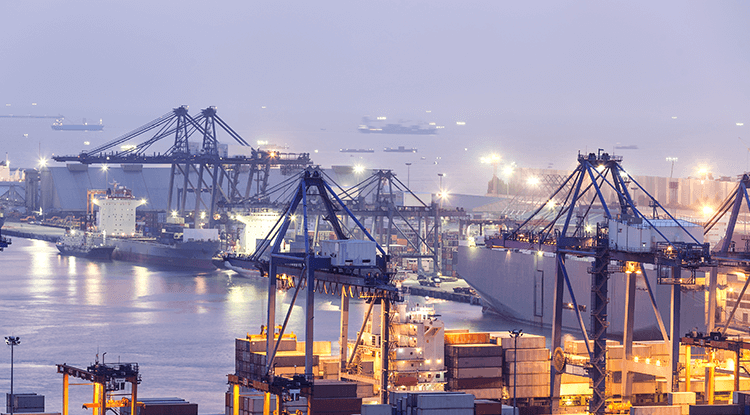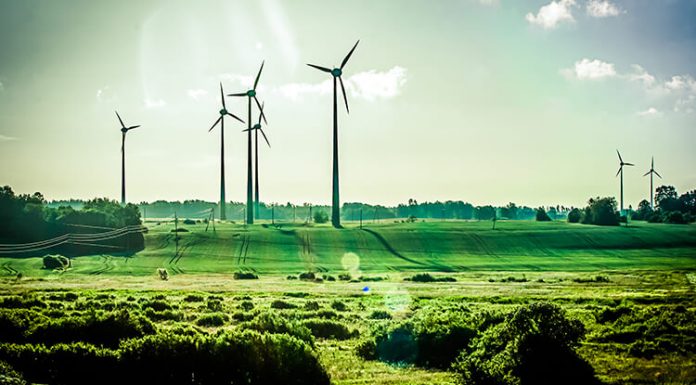Energy and Environment
Achieving energy security and diversification combined with fighting climate change, has become the number one issue on the agenda of all developed countries in the world. In this respect, Greece, situated at the southest part of Europe, has started to play and will continue to play quite a significant role as an energy gateway between the East and the West.
About Greece – Energy and Environment
Energy Policy
As the world addresses diverse and challenging questions related to energy production and supply, Greece plays a pivotal role in charting Europe’s energy map, emerging as a strategic energy hub. Situated at the southeast part of Europe, Greece is an energy gateway to the East and West.
Today the Greek energy market is undergoing fundamental reforms:
The energy markets are under liberalisation schemes. Domestic and cross boarder networks are being created, extended or simply enhanced and output by Renewable Energy Sources is growing fast. Production and supply are being separated from transmission networks, fossil-fuel generated electricity is dropping and energy efficiency in terms of security, economy and environmental protection continues to top the energy agenda.
Read more
RES? Yes!
Renewable Energy Sources (RES) means renewable non-fossil energy sources: wind, solar, geothermal wave, biomass/biofuel, tidal, hydro-electric power, landfill gas, sewage treatment plant gas and biogases as defined by Directive 2001/77/EC.
The development of Renewable Energy Sources has been among the major energy policy lines of Greece for the last decade. It is seen as an important contribution to the improvement of the Greek environmental indicators and, in particular, to the abatement of CO2 emissions. In 2009, the renewables accounted for 18% of primary energy production. The national target is to achieve 20% contribution of the energy produced from RES to the gross final energy consumption by 2020.
Legal and financial incentives are the tools of the government’s strategy to support renewable energy technology (RET) investments.
https://www.mfa.gr/china/en/about-greece/energy-and-environment/energy.html
Investing in the Greek Energy Sector
Located at the crossroads between East and West, Greece is uniquely positioned to play a significant role in the broader region’s energy markets.The ample availability of renewable energy potential (wind, hydro, biomass, geothermal, solar & solar thermal) combined with ongoing large-scale infrastructure projects involving Greece (TAP-IGB-EastMed Gas Pipelines, oil exploration) show that Greece will be a key player in the formulation of the EU energy mix and will provide significant investment opportunities in all energy industries.
The Greek Energy System
In recent years, the Greek energy system is characterized by:
high consumption of conventional fuels based in large part on lignite which was strategically chosen for electricity production after the oil crisis of the 70s,
high imports dependency which included crude oil, oil products and natural gas
the increasing penetration of natural gas into final consumption in Greece, although it still represents a small share of total consumption, and falls short from the European average
increased RES electricity production and improved of energy efficiency, reflecting Greece’s efforts to adopt European and national policies.
The energy sector in Greece has a higher contribution to gross value addded (GVA) and employment than in most EU countries, and is poised to grow significantly in the coming years, driven by a number of significant factors:
required optimization of the energy mix , which consists of the reduction of fossil-fuel generated electricity and increased contribution from RES. This shift will be driven both by the revised EU policy of 27% renewable energy sources by 2030, and by the preference for cheaper energy sources such as natural gas
the state’s planned privatization of major energy assets such as the Public Power Corporation (PPC), the natural gas distributor (DEPA), the Hellenic Gas Transmission System Operator (DESFA) and the Hellenic Petroleum
the liberalization of the electricity and natural gas markets and the further separation of production and supply from transmission networks
the potential for Greece to become a European gateway for natural gas, electricity and oil resources through mega- infrastructure projects such as the TAP-IGB-EastMed gas pipelines, or gas and oil exploration and production.
efforts to improve energy efficiency and reduce cost driven by such technologies as smart metering, smartgrid technologies, LED lighting, energy efficient buildings etc.
major infrastructure development initiatives such as the interconnection of the Greek islands with the main electricity grid
Why Greece
Strategic Position – Greece is currently emerging as a key player in the transportation of energy from East to West through pipeline projects, electricity grid interconnectivity and alternative means of ensuring security of supply through offshore reserves (e.g. LNG terminals)
Generation Potential – Due to its climate conditions (Greece enjoys more than 250 days of sunshine—or 3,000 hours of sun—a year, and has a strong wind capacity), the country possesses significant untapped generation potential –particularly in renewables – which can enhance the EU energy mix.
Government Support and Legislation – the Ministries of Environment & Energy, and Economy & Development, have spearheaded several major investment projects over the past years, including the TAP-IGB-EastMed natural gas pipelines, the new liquefied natural gas terminal in Revithoussa, and major RES investments. This, in combination with Greece’s upgraded energy investment regulatory framework, provides exceptional opportunities for investment in all energy sectors.
Main investment opportunities
Privatization of state assets
New infrastructure in natural gas transmission (liquefied natural gas terminals, natural gas pipelines, natural gas distribution systems)
International public tenders for hydrocarbon exploration in different areas of Greece.
Renewable energy projects (wind, solar-thermal, biomass, small hydro, geothermal etc.)
Energy efficient businesses and investments
Main grid interconnectivity with the islands, upgrading and development of cross-border electricity grid interconnections (Maritsa East, EuroAsiaInterConnector)
A strong sector with several recent success stories:
US Third Point Gas has entered into the share capital of Energean Oil & Gas (a Greek Oil & Gas producer and explorer) through an equity capital injection of $60 million.
Qatar Petroleum International (QPI) and the Greek company GEK Terna have signed an agreement to acquire an interest in the Heron II power plant, signaling QPI’s first investment in Greece. Heron II is currently Greece’s most efficient power plant.
Chinese Shenhua Group has entered into a co-operation agreement with Copelouzos Group to develop RES projects and upgrade lignite units in a € 3 billion investment plan.
China State Grid has acquired a 24% stake of the Independent Power Transmission Operator (ADMIE), for € 320 million,Canadian investment fund Fairfax Holdings has become the third largest shareholder of Greek industrial energy group Mytilineos , acquiring a 5% stake worth about € 30 million ($41 million).
US York Capital Management has announced €100 million investments in Greece’s GEK Terna, acquiring a 10% stake of in the company.
https://www.enterprisegreece.gov.gr/en/invest-in-greece/sectors-for-growth/energy

GREEK SHIPPING
Greece is a major maritime nation with its shipping industry, along with tourism, being the most important sectors of the national economy.
For many consecutive years, Greece has been ranked first in the world for the merchant fleet owned by its nationals. According to the annual information paper of the London-based Greek Shipping Cooperation Committee, based on data provided by Lloyd’s Register-Fairplay, in February 2009, Greek interests controlled around 8.2% of the world’s total number of vessels in service and on order, 15.2% of the world fleet deadweight, or 13.2% of the world fleet expressed in gross tons.
Moreover, the average age of the Greek-controlled vessels of 11.9 years in 2009 was one year below the average age of the world fleet which was 12.9 years. The impressive age decrease of the Greek owned fleet (from 20.3 years in 2000) reflects an unprecedented investment in new vessels over the past few years.
The presence of Greek owners is particularly significant in tankers and bulk carriers which carry the majority of the world trade.
The percentage of each type of Greek controlled vessel, in relation to the world fleet of the corresponding type for the years 2008 and 2009 was as follows:
Oil Tankers
Percentage of number of ships 2008: 22.9
Percentage of number of ships, 2009: 22.3
Percentage of total DW 2008: 20.9
Percentage of total DW 2009: 20.4
Chemical & Products Tankers
Percentage of number of ships, 2008: 9.8
Percentage of number of ships, 2009: 9.4
Percentage of total DW 2008: 14.0
Percentage of total DW 2007: 13.3
Liquid Gas Carriers
Percentage of number of ships 2008: 8.9
Percentage of number of ships, 2009: 9.8
Percentage of total DW 2008: 6.6
Percentage of total DW 2009: 6.9
Combination Carriers
Percentage of number of ships 2008: 7.4
Percentage of number of ships, 2009: 5.6
Percentage of total DW 2008: 6.0
Percentage of total DW 2009: 4.6
Ore & Bulk Carriers
Percentage of number of ships 2008: 19.8
Percentage of number of ships, 2009: 18.1
Percentage of total DW 2008: 21.9
Percentage of total DW 2009: 19.1
Container Carriers
Percentage of number of ships 2008: 4.6
Percentage of number of ships, 2009: 4.5
Percentage of total DW 2008: 5.9
Percentage of total DW 2007: 5.7
Other Cargo Ships
Percentage of number of ships 2008: 1.0
Percentage of number of ships, 2009: 1.0
Percentage of total DW 2008: 1.6
Percentage of total DW 2007: 1.9
Passenger Ships
Percentage of number of ships, 2008: 6.5
Percentage of number of ships, 2009: 6.7
Percentage of total GT, 2008: 5.8
Percentage of total GT, 2009: 6






















